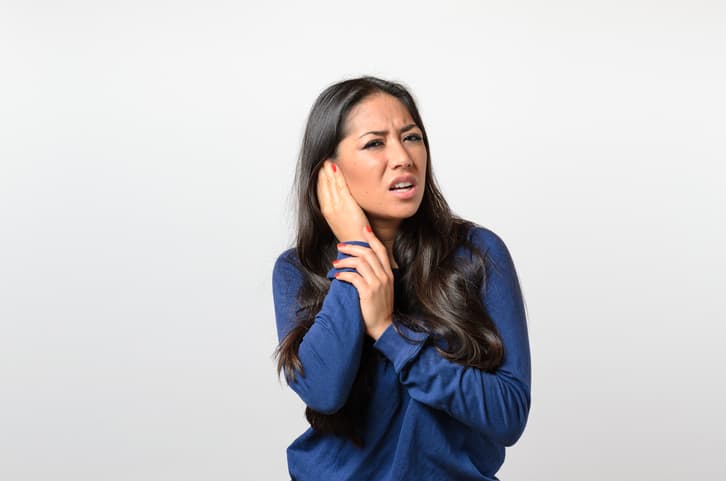 Most people probably grind and clench their teeth from time to time. Occasional teeth grinding, medically called bruxism, can be very mild, and not cause any harm, but when teeth grinding occurs on a regular basis the teeth can be damaged and other oral health complications can arise.
Most people probably grind and clench their teeth from time to time. Occasional teeth grinding, medically called bruxism, can be very mild, and not cause any harm, but when teeth grinding occurs on a regular basis the teeth can be damaged and other oral health complications can arise.How Do I Find Out if I Grind My Teeth?
Because grinding often occurs during sleep, most people are unaware that they grind their teeth. However, a dull, constant headache or sore jaw when you wake up is a telltale symptom of bruxism. Many times people learn that they grind their teeth by their loved one who hears the grinding at night.
If you suspect you may be grinding your teeth, talk to your dentist. They can examine your mouth and jaw for signs of bruxism, such as jaw tenderness and excessive wear on your teeth.
Why Is Teeth Grinding Harmful?
In some cases, chronic teeth grinding can result in a fracturing, loosening, or loss of teeth. If not diagnosed and monitored by your dentist, the chronic grinding may wear teeth down to stumps. When these events happen, bridges, crowns, root canals, implants, partial dentures, and even complete dentures may be needed.
Not only can severe grinding damage teeth, but it can also affect your jaw, cause or worsen TMD/TMJ, and even change the appearance of your face.
What Can I Do to Stop Grinding My Teeth?
Your dentist can fit you with a mouth guard to protect your teeth from grinding during sleep.
If stress is causing you to grind your teeth, ask your doctor or dentist about options to reduce your stress. Attending stress counselling, starting an exercise program, seeing a physical therapist, or obtaining a prescription for muscle relaxants are among some of the options that may be offered.
If a sleeping disorder is causing the grinding, treating it may reduce or eliminate the grinding habit.
Other tips to help you stop teeth grinding include:
- Do not chew on pencils or pens or anything that is not food.
- Train yourself not to clench or grind your teeth. If you notice that you clench or grind during the day, position the tip of your tongue between your teeth. This practice trains your jaw muscles to relax.
- Relax your jaw muscles at night by holding a warm washcloth against your cheek in front of your earlobe.
Do Children Grind Their Teeth?
The problem of teeth grinding is not limited to adults. Approximately 15% to 33% of children grind their teeth. Children who grind their teeth tend to do so at two peak times — when their baby teeth emerge and when their permanent teeth come in. Most children lose the teeth grinding habit after these two sets of teeth have come in more fully.
Most commonly, children grind their teeth during sleep rather than during waking hours. No one knows exactly why children grind their teeth but considerations include improperly aligned teeth or irregular contact between upper and lower teeth, illnesses and other medical conditions (such as nutritional deficiencies, pinworm, allergies, endocrine disorders), and psychological factors including anxiety and stress.
Grinding of the baby teeth rarely results in problems. However, teeth grinding can cause jaw pain, headaches, wear on the teeth, and TMD. Consult your dentist if your child’s teeth look worn or if your child complains of tooth sensitivity or pain.
No intervention is usually required with preschool-age children. However, older children may need temporary crowns or other methods, such as a nightguard, to prevent the grinding.
